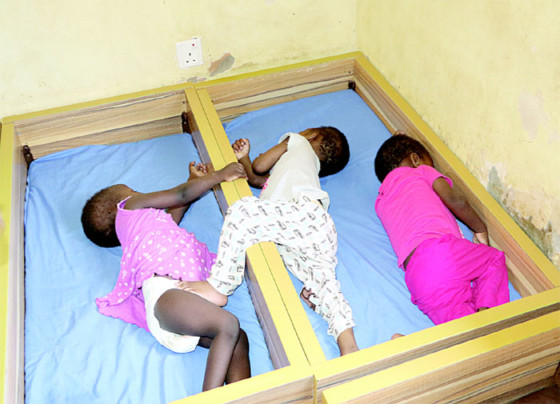1 in 8 children die before age 5
Only 29% of Nigerian children breastfed exclusively

By Chioma Obinna
Although Nigeria made progress in the reduction of infant mortality, exclusive breastfeeding, and immunisation coverage among others, the just-released 2018 National Demographic Health Survey, NDHS, shows more significant challenges exist.
According to the report, Nigeria still parades an unenviable rate of 67 deaths per 1,000 live births and ranks among the five countries in the world with the highest number of under-five deaths.
The survey showed that while infant mortality reduced from 75 percent deaths per 1,000 live births in 2008 to 67 deaths per 1000 live births, in 2018, the number of neonatal deaths remained unchanged, meaning that there is a probability of a Nigerian neonatal dying within the first month or birthday.
READ ALSO: Man drags estranged wife to court over failure to return children
Unveiling the report during a two-day media dialogue in Port Harcourt, Rivers State, organised by the Child Rights Information Bureau and the Federal Ministry of Information, UNICEF Monitoring and Evaluation Specialist, Maureen Zubie-Okolo said Infant mortality was still high.
According to her, the 2018 NDHS revealed that under-five mortality was 132 deaths per 1,000 live births, implying that more than 1 in 8 children in Nigeria dies before their 5th birthday.
She also noted that the survey showed that the under-5 mortality rate decreased since 2008, from 157 deaths per 1,000 live births to 132 deaths per 1,000 live births.
“Similarly, there has been a slight reduction in infant mortality, from 75 to 67 deaths per 1,000 live births. However, there has been no noticeable change in the neonatal mortality rate over the same period.”
The report also notes that Childhood mortality in Nigeria remains high and that every year, an estimated one million Nigerian children die before their fifth birthday.
The report also showed that Nigeria is one of five countries in the world with the highest number of under-five deaths.
She further disclosed that the report found that 97 percent of Nigerians have no health insurance.
On breastfeeding, the report noted a slight increase in exclusive breastfeeding with 12 percent.
Zubie-Okolo said the figures rose from 17 percent in 2013 to 29 percent in 2018.
She lamented that despite the increase Nigeria still lagging behind from the global target of 50 percent.
The UNICEF Specialist, however, disclosed that 97 percent of children were breastfed in both 2008 and 2018.
“The percentage of children who started breastfeeding within one hour of birth has increased by nine percentage points since 2013, from 33 percent to 42 percent while the percentage who started breastfeeding within 1 day has increased from 65 percent to 82 percent since 2008.”
READ ALSO: UNICEF enrolls 194, 883 out-of-school children in Adamawa
On immunisation, the NDHS 2018 revealed that Nigeria was still 60 percent away from achieving the Sustainable Development Goals, SDGs.
Zubie-Okolo noted that vaccination coverage has improved in Nigeria in the last 10 years with all basic vaccinations increased from 23 percent in 2008 to 31 percent in 2018.
“The percentage of children who received none of the basic vaccinations declined from 29 percent to 19 percent during the same period.
She, however, said while these trends show improvement, they still fall short of Sustainable Development Goal 3, in which the target is achieving more than 90 percent coverage of all basic vaccinations among children age 12-23 months.
The post Mixed feelings over NDHS 2018 as few indicators remain unchanged appeared first on Vanguard News.
https://ift.tt/386Ti24 by Lawal Sherifat via Vanguard News Albert Einstein Fools of Fortune
Comments
Post a Comment